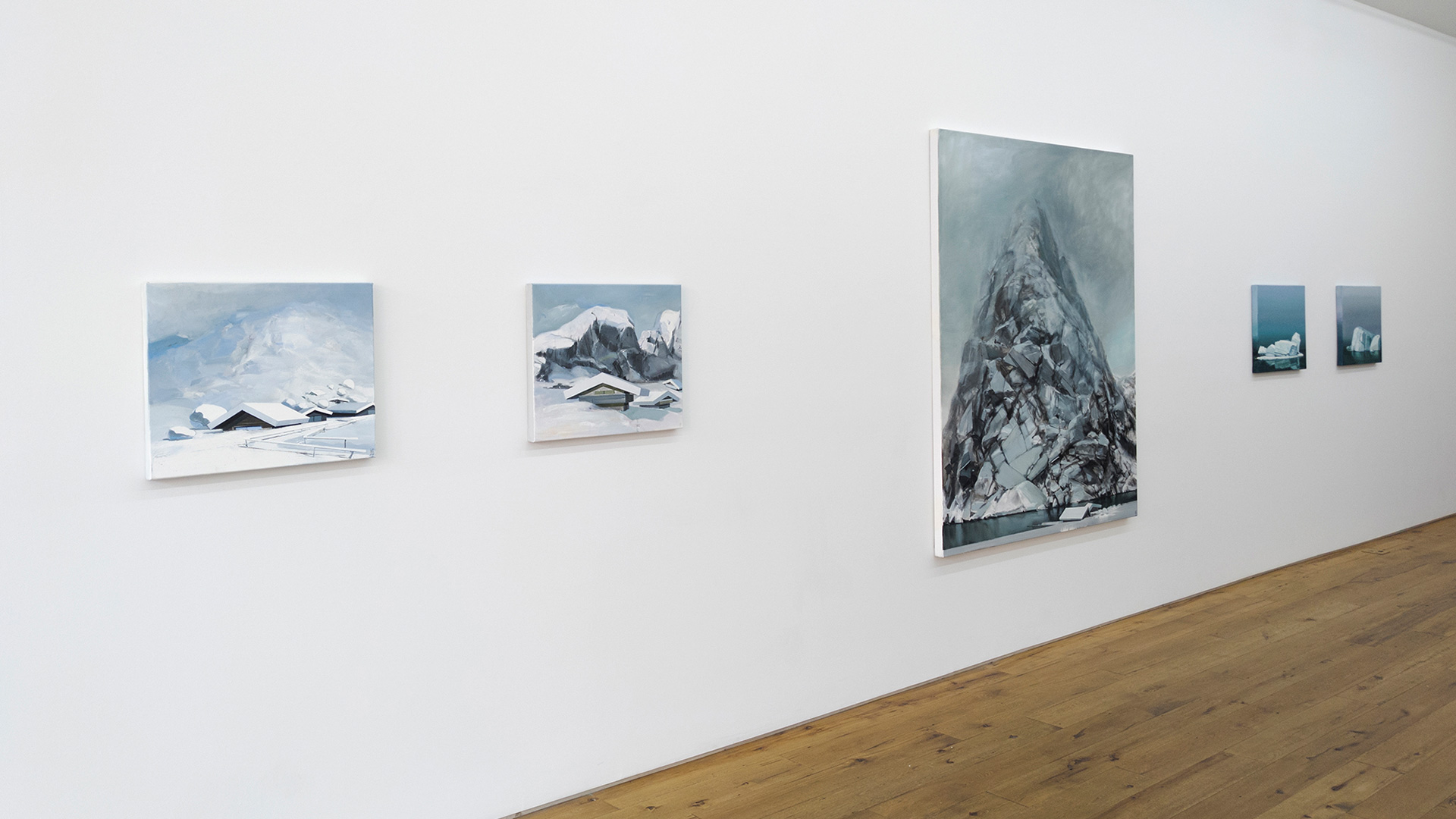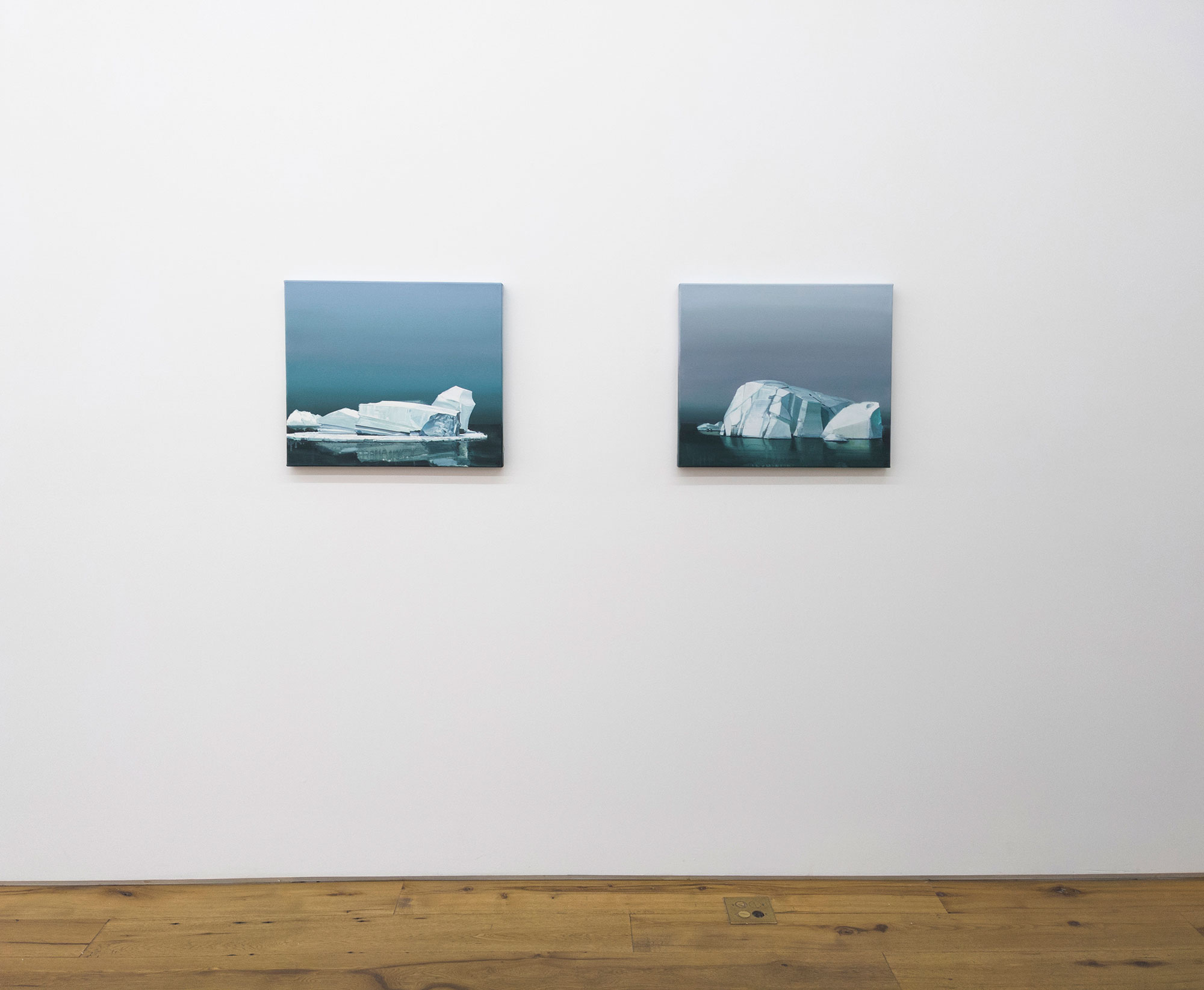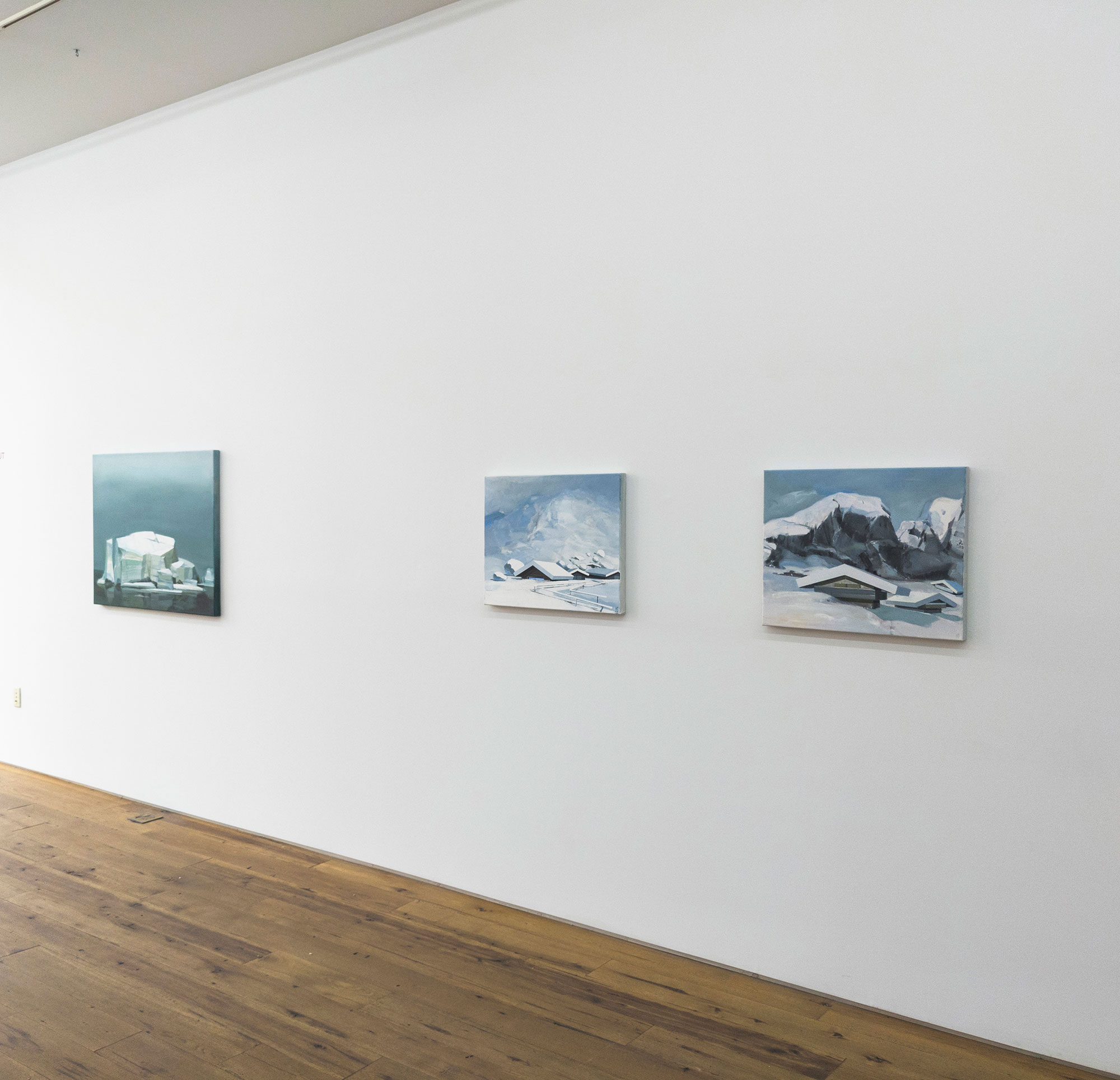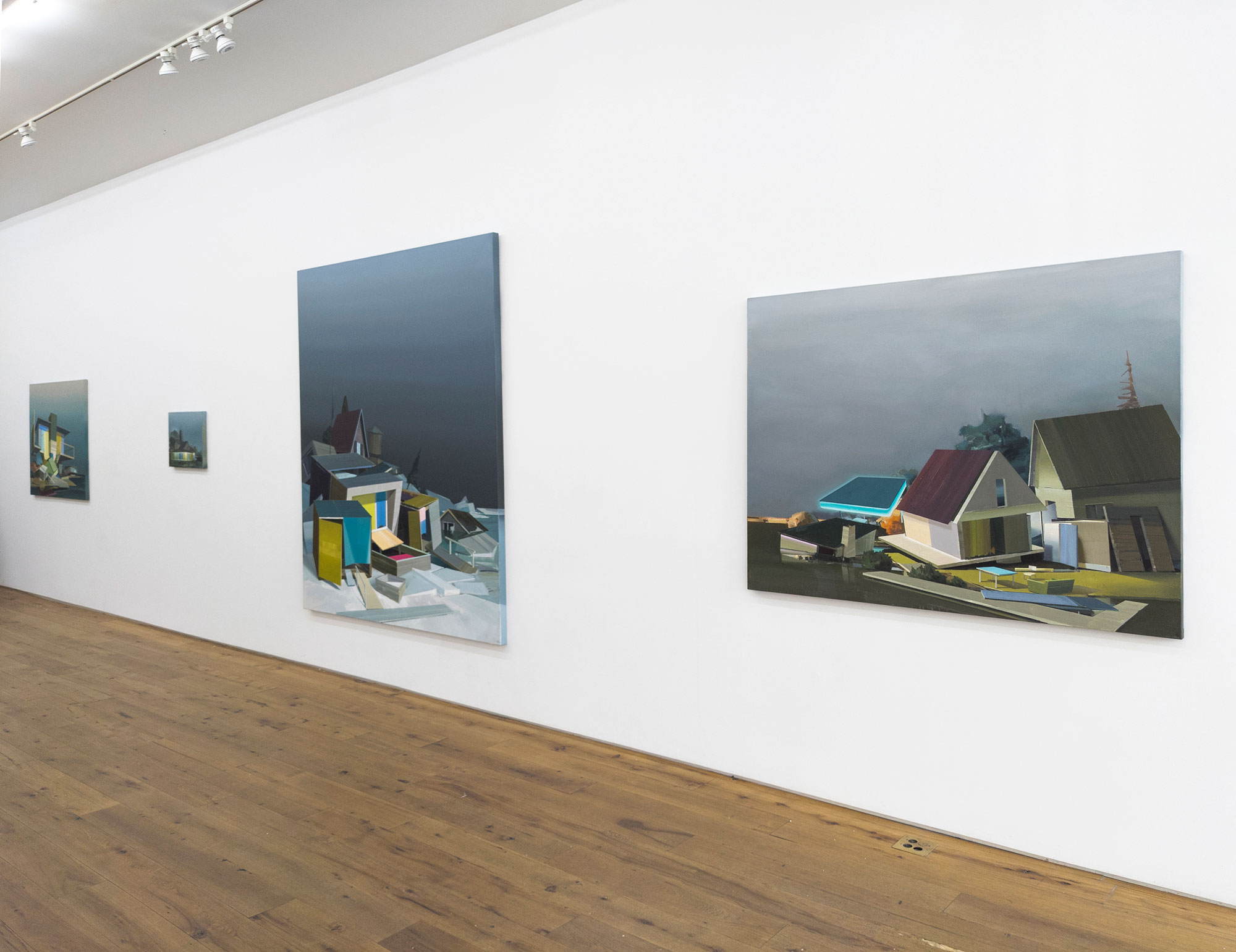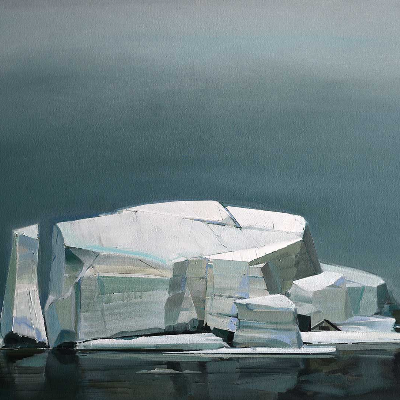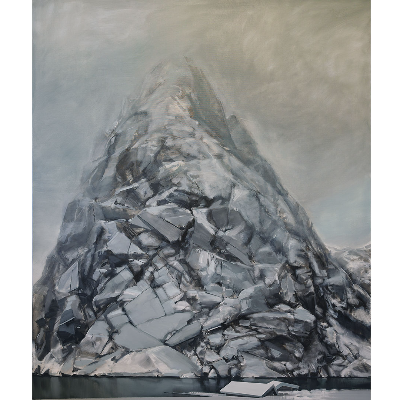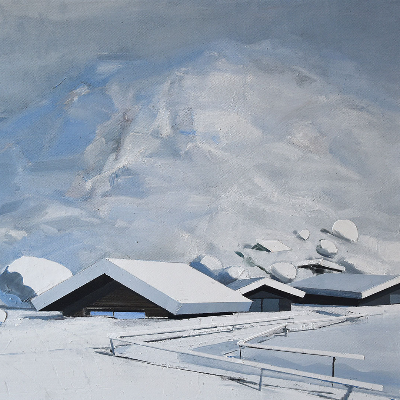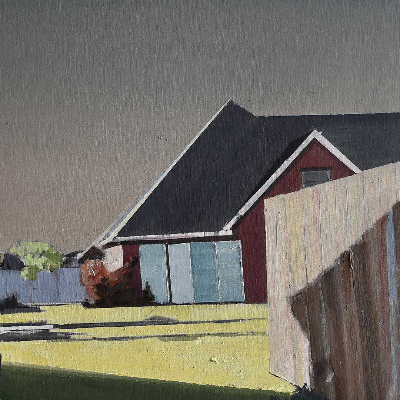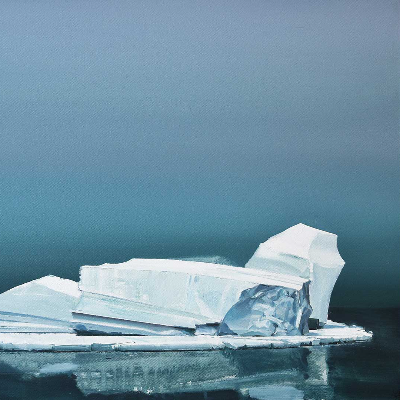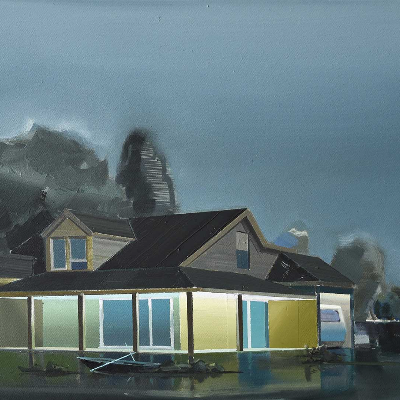MARC STRAUS is pleased to present an exhibition of new works by Ulf Puder, a leading and influential artist in the Leipzig painting movement. This will be Puder’s fifth one-person exhibition with the gallery.
Ulf Puder, a landscape artist for 20 years, looks at the genre as a cultural concept, defining it as a clash between nature and culture. In his invented landscapes, he addresses cultural and political developments across Europe. He considers the two years of the pandemic, the energy crisis, the current Russian/Ukrainian war, other regional economic uncertainties, and various global conflicts. Puder approaches these struggles through romanticism, a viewpoint that is not in denial, but that plays on our weakness, laxed attitude, and idealism. Among the new works, one painting depicts a collapsing mountain, another an exploding rock. The rock, symbolic and powerful, signifies protection while also reflecting the broken state of the new world order. In addressing this dichotomy, the natural strength of the rock, millions of years unchanged, now begins to crumble with human intervention.
In Willy Lott’s House, Puder references a painting by John Constable that is influential in his work. The painting depicts a small American period house with contrasting dark clouds in the background and a well-lit foreground. The lighting is dramatic: electric lights, reflection on the water, an absence of sunlight and moonlight. A recurring question for Puder is how would one go about a painting today that was painted 100 or 200 years ago? He concludes that the first step is to recycle the title, closely followed by contemporary additions to the original version. The Icebergs, the title of a painting by American landscape artist Frederic Edwin Church, was painted in 1861. With this work, Puder has used the image in varying versions in his own work to address pressing contemporary issues. The icebergs, the mountains, and the alps are part of the artist’s experiences, while also acting as metaphors for cultural and political changes.
Puder’s creative process is traditional with a few contemporary twists. The earlier works were created entirely with brush and paint. He now uses a spatula with a deliberate application of paint to specific parts of the canvas; a roof, or a river path, for instance, are now more brilliant through the use of a new technique. He uses tape occasionally to create defined edges, and to create important elements of the pictorial plane, such as broken structures and melting icebergs. Puder argues that despite our infinite capacity to destroy, by shifting focus we can build up. In his continued quest to create quixotic worlds, he continues to look at nature and culture, and how a shift in one often impacts the other.
Born in 1958, Ulf Puder lives and works in Leipzig and Liemehna, Germany. Puder completed his undergraduate studies at The Maleriei and Grafik of the Hochschule for Grafik and Buchkunst, in Leipzig (then East Germany), with Professor Burger and Professor Bernhard Heisig; followed by a master’s degree with Professor Bernhard Heisig. In 1999 and 2000 he was included in the seminal exhibition After the Wall with venues at the following institutions: Nationalgalerie-Hambuger Bahnhof; Museum für Moderne Kunst, Berlin (DE); Ludwig Museum, Budapest (HU); Museum für Moderne Kunst, Stockholm (SE); and Galerie Schwind, Frankfurt (DE). As a leading figure in the German art scene, his work is widely collected by institutions such as the Hamburger Kunsthalle, Hamburg (DE); Kunstalle Sparkasse, Leipzig (DE); Museum der Bildenden Kunste, Leipzig (DE); Staatliche; Kunstsammlung, Dresden (DE); Stadtische Galerie, Wolfsburg (DE); Sammlung Bankhaus Metzler (DE); Sammlung Deutsche Bank, Frankfurt Main (DE); Museum für Moderne Kunst, Frankfurt Main (DE); and Sammlung Hypo Vereinsbank, München, Germany (DE). In the United States he has exhibited at the Neuberger Museum of Art, in Purchase, NY and Hudson Valley MoCA, in Peekskill, NY.
Read more +
Read less -







 Sign in with email
Sign in with email


